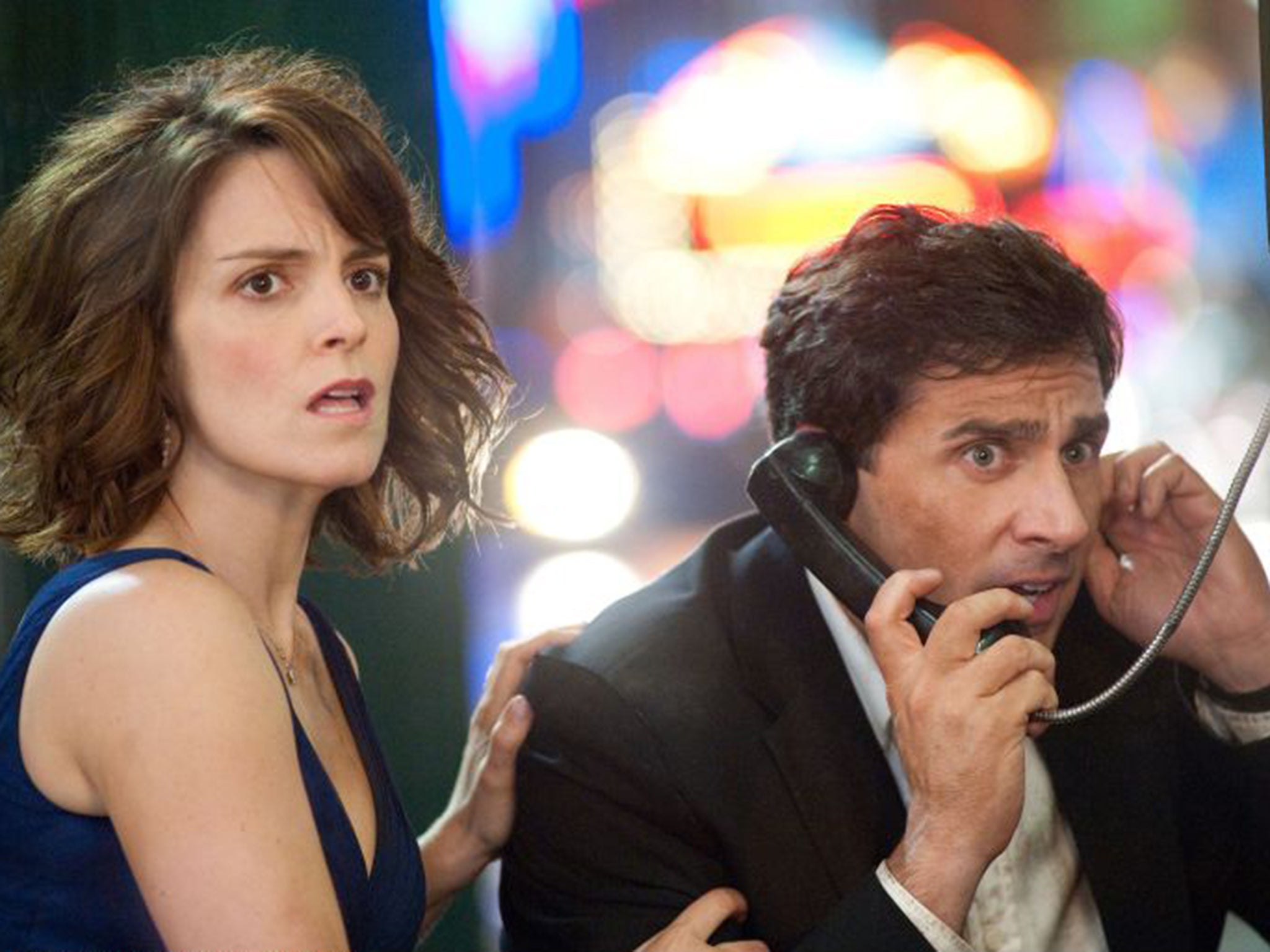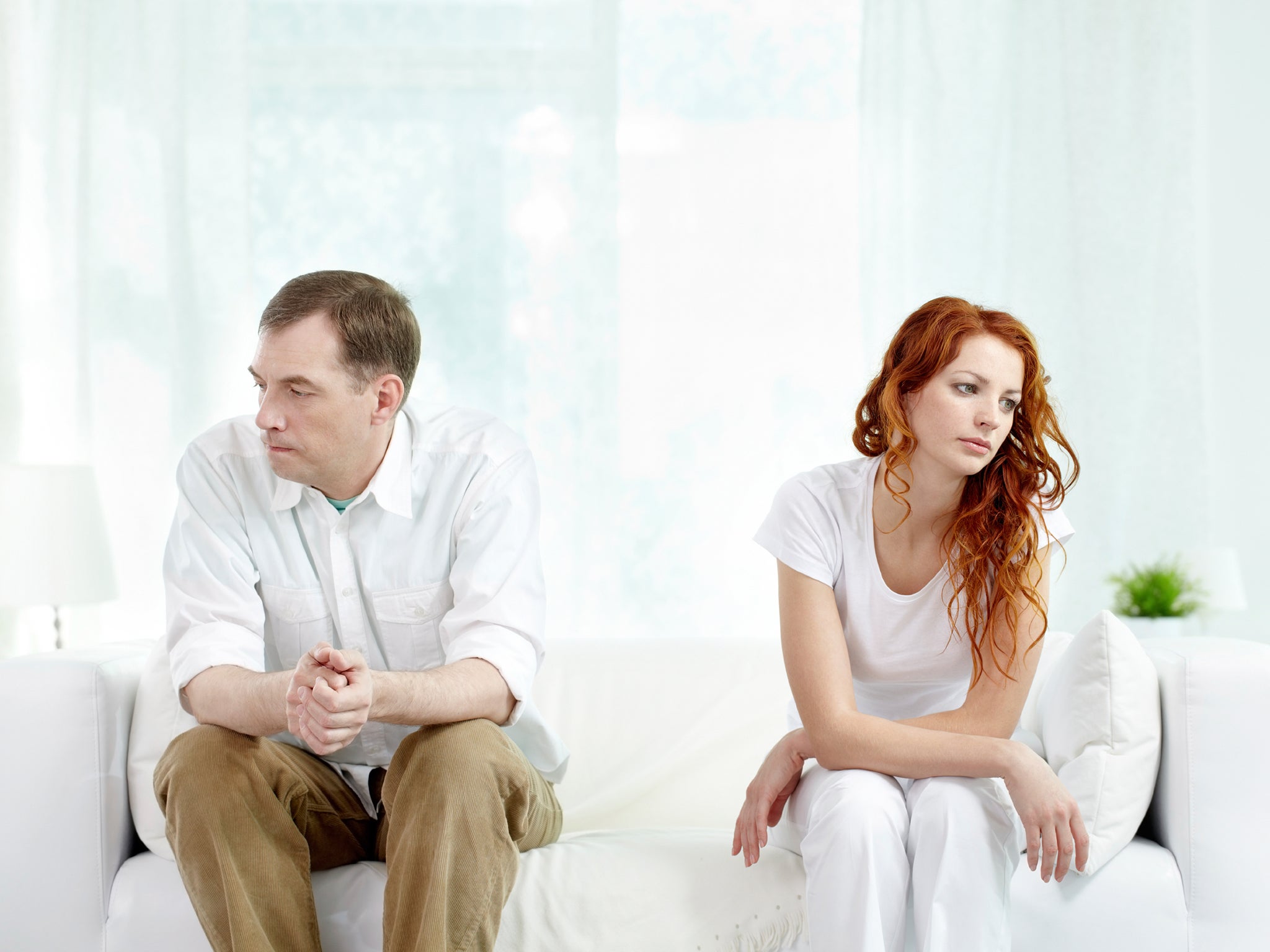A couples therapist reveals why modern marriage is so hard
Most of us get married if and when we feel like it, to someone we love and who loves us in return

Your support helps us to tell the story
From reproductive rights to climate change to Big Tech, The Independent is on the ground when the story is developing. Whether it's investigating the financials of Elon Musk's pro-Trump PAC or producing our latest documentary, 'The A Word', which shines a light on the American women fighting for reproductive rights, we know how important it is to parse out the facts from the messaging.
At such a critical moment in US history, we need reporters on the ground. Your donation allows us to keep sending journalists to speak to both sides of the story.
The Independent is trusted by Americans across the entire political spectrum. And unlike many other quality news outlets, we choose not to lock Americans out of our reporting and analysis with paywalls. We believe quality journalism should be available to everyone, paid for by those who can afford it.
Your support makes all the difference.In a way, the prevailing model of American marriage today seems great compared to the traditional one.
No longer do we get hitched because our dad told us to, because the guy is wealthy, or because the girl comes from a high-status family.
Instead, most of us get married if and when we feel like it, to someone we love and who loves us in return.
Except, in case you haven't heard, marriage today can feel impossibly difficult — perhaps even more so than it used to feel.
How's that?
In a recent interview with bestselling author Ramit Sethi, couples therapist Esther Perel shared some insight into why marriage can seem so hard.
Here's what she told Sethi: "Marrying because you are deeply attracted to someone and have fallen deeply in love with someone and are lusting [after] that person — all of these are rather recent ideas.

"They come with romanticism; they have arrived in the west about 150 years ago. And never has love been the foundation for marriage — and certainly not in love and in passion.”
Perel said that, in the traditional model of marriage, “we want companionship, family life, social status, and respectability, and economic support.”
But our desire for those things didn't disappear when the modern, romantic model of marriage took hold. We simply added more requirements to the mix.
Here's Perel again:
“Now we want you to be my best friend and my trusted confidant and my passionate lover to boot — and we live twice as long. That's the model.”
These increasing demands can have serious — and not always positive — ramifications for our sex lives.
“We have moved from a model of sexual duty in this romantic arrangement to sexual pleasure and sexual connection,” Perel said, “in which desire is, I don't do it [have sex] because it's part of marital duty.”
“I do it because I feel like it and you feel like it and we feel like it at the same time and hopefully for each other. There's a lot of conditions that need to be met here.”
In other words, when you expect your partner to fulfill all your needs as a human being, there's more room for disappointment. That's especially true in the bedroom.
Perel's comments are especially relevant in light of recent research by the psychologist Eli Finkel, who found that our expectations for American marriage have changed drastically in the last two centuries or so.
As Business Insider's Jessica Orwig has reported, before 1850, people got married for food production, shelter, and protection from violence.
Starting around the mid-19th century, however, people started marrying for companionship and love.
Since 1965, people have seen marriage as optional, and have looked to their spouse for personal fulfillment.
That means that good marriages, in which the partners do fulfill each other's existential needs, are great. And marriages in which partners fall short in a couple categories are highly dissatisfying.
The solution here isn't to go back to the old model of marriage, letting our parents assign us spouses based on their socioeconomic standing. Instead, it's worth being aware that you're placing so many demands on your partner — and that they might be equally demanding of you.
Perhaps, as Finkel suggests, you'll want to look outside your marriage for additional sources of personal fulfillment — like friends and hobbies. Or maybe you and your partner will have a conversation about how grateful you are for what the other does provide, and what each would like to see more of going forward.
Your marriage will never be perfect — but being aware of the broader cultural forces behind your particular issues is perhaps the first step to solving them.
Read more:
• This chart is easy to interpret: It says we're screwed
• How Uber became the world's most valuable startup
• These 4 things could trigger the next crisis in Europe
Read the original article on Business Insider UK. © 2016. Follow Business Insider UK on Twitter.
Join our commenting forum
Join thought-provoking conversations, follow other Independent readers and see their replies
Comments